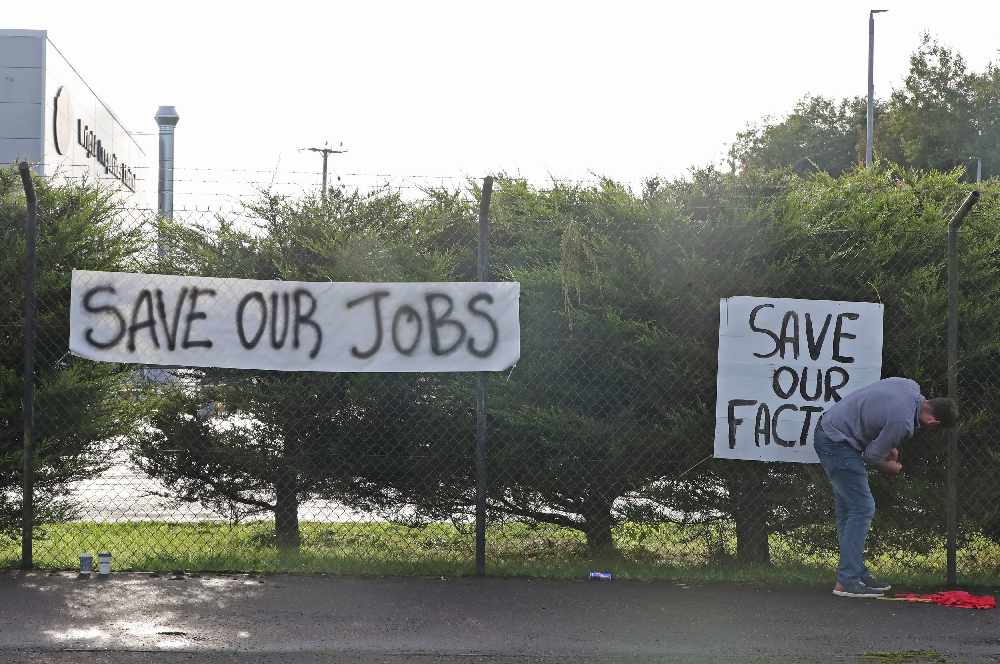
By David Young, PA
Wrightbus may have gone under if Invest NI had not pumped in £2.5 million of rescue funding that was later ruled to be unlawful state aid, the auditor general has said.
Stormont’s business support agency awarded the loan to the troubled bus building company in July 2019. The payment was to allow the company to survive until a buyer was found.
Three months later, with Wrightbus having formally gone into administration, the Ballymena manufacturer was acquired by Bamford Bus Company, owned by English industrialist Jo Bamford.

The £2.5 million loan was distributed prior to the approval of the European Commission, which adjudicates on state aid funding.
Invest NI did inform the Commission of its intent to provide the loan but paid it out before the move was approved.
While the Commission ruled that rendered the loan “unlawful state aid”, it took no further action against Invest NI.
Auditor general for Northern Ireland Kieran Donnelly examined the circumstances behind the loan in his report on Invest NI’s annual accounts for 2019/20.
He said the agency told him it was “not uncommon” for rescue aid to be awarded prior to final approval of the Commission.
Invest NI said if it had waited for final written approval, the subsequent sale of the company would not have happened.
Mr Donnelly said: “Whilst I note the breach of Article 108(3) (Treaty on the Functioning of the European Union), I accept that the purpose of the loan was to secure the continuance of the Wrightbus operation until a buyer could be found and without providing the funding the successful outcome may not have been achieved.”
Mr Donnelly also audited £3 million of grants awarded to the Wrightbus Group by Invest NI since 2014. He said all relevant checks had been carried out to “ensure the funding met the requisite criteria of the funding schemes used”.
The auditor general also said Invest NI had appropriately managed any potential conflict of interest situation that may have arisen from a senior member of Wrightbus’s executive management team sitting on the Invest NI board.
Mr Donnelly said he received assurances that any issues were avoided as the board member was excluded from any relevant conversations about Invest NI’s relationship with the bus builder.
Of the £2.5 million loan paid out to Wrightbus in 2019, £1.5 million has been repaid with a schedule for the remainder to be paid within 12 months.
A spokeswoman for Invest NI said: “Given the nature and urgency of rescue aid it is not uncommon that it is awarded prior to final approval by the EU Commission.
“In the case of Wrightbus, the cash flow pressures were such that to wait for final written approval from the Commission would have resulted in an administrator being appointed and the subsequent rescue and sale not proceeding.
“The Commission was sighted on the entire process throughout, as was the Department for the Economy and the Department of Finance. £1.5 million of the loan has already been repaid and the administrator has advised that the remainder is expected through the realisation of assets.”
Turning to the Department for the Economy’s annual accounts, the auditor highlighted issues around the repayment of £225 million of loans to bail out the troubled Presbyterian Mutual Society in 2008.

(Auditor general for Northern Ireland Kieran Donnelly)
Mr Donnelly said £50 million of that total was at the end of the list of creditor priorities and was unlikely to be ever repaid.
He said the remaining £175 million was being repaid in annual instalments, facilitated through the sale of the society’s loanbook, which mainly comprised retail outlets and offices in Scotland and the north of England.
Mr Donnelly said while full repayment of the £175 million was due by November this year, as of March 31 only £78 million had been recouped.
He said Covid-19 had “seriously affected” the planned exit arrangement and the department was reviewing a potential extension of the loan facility.
The Audit Office also examined the department’s expenditure on HMS Caroline.
The last surviving ship from the First World War’s most famous naval battle, the Battle of Jutland, is currently closed to visitors amid a stand-off over funding.
The National Museum of the Royal Navy (NMRN) have failed to secure a financial support deal with the Department for the Economy, which is assessing the future viability of the floating museum after disappointing visitor numbers since it was fully opened to the public in 2018.
Under a previous operating agreement, the NMRN works to maximise income to cover the costs of running the attraction, with the powersharing executive making up any shortfall.
That agreement with the DfE expired at the end of June and was not been renewed.
Mr Donnelly noted that the restoration of HMS Caroline took two years more than scheduled and cost £4.3 million more than the original £14.4 million estimate.
He said the department had incurred a further £1.4 million in costs, mainly due to lower than expected visitor numbers since the opening two years ago.
“A permanent operator solution needs to be found for the ship,” said Mr Donnelly.
The auditor also qualified expenditure of more than £15 million to cross-border bodies Tourism Ireland and InterTradeIreland.
This was as a result of the powersharing crisis, as the 2019 and 2020 business plans for the two bodies were not formally approved by the North/South Ministerial Council.
The council, which brings together ministers from the Stormont Executive and Irish Government, only reconvened for the first time in more than three years in July following resolution of the devolution crisis in Belfast.


 Kneecap announce new song ahead of headline performance at London’s Wide Awake
Kneecap announce new song ahead of headline performance at London’s Wide Awake
 Gordon Lyons to attend first GAA match as Stormont Communities Minister
Gordon Lyons to attend first GAA match as Stormont Communities Minister
 Fresh appeal over 1973 murder of 18-year-old whose body was found in quarry
Fresh appeal over 1973 murder of 18-year-old whose body was found in quarry
 Kneecap say terror charge is ‘carnival of distraction’ and ‘political policing’
Kneecap say terror charge is ‘carnival of distraction’ and ‘political policing’
 Woman assaulted while jogging in West Belfast
Woman assaulted while jogging in West Belfast